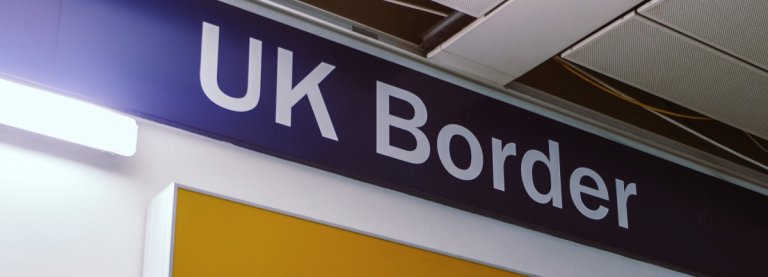
The National Union of Students has called the UK’s student visa system “broken” in a new report exposing the untold impact of the Test of English for International Communication (TOEIC) scandal in 2014.
“The TOEIC Scandal: An Ongoing Injustice” report released yesterday detailed how a significant number of students had been unjustly treated in the Home Office’s crackdown on TOEIC test fraudsters, with grievances that have yet to be recognised or rectified.
“With the UK poised to leave the European Union, the Tier 4 visa system for international students
will become increasingly important to the functioning of our higher education system. However, it
is NUS’ view that the Tier 4 system is broken,” the report wrote.
“Students who come to the UK and find themselves subject to unfair treatment by the Home Office or their educational institution have no effective recourse to an independent body for an impartial adjudication.”
Today we release a new report which reveals further evidence of the ongoing injustice from the ‘TOIEC’ (Test of English for International Communication) scandal, read the full report here: https://t.co/Rw8HuVKnuD
— NUS UK #StudentsDeserveBetter (@nusuk) May 10, 2018
The report stresses the importance of upholding the rights of appeal to the Immigration Tribunal for any grievances impacting international students. The current “administrative review” within the Home Office to correct “case-working errors” is insufficient as the Office of the Independent Adjudicator does not hold power to stop immigration taken whilst their complaints are being investigated.
Several students which have been falsely accused with the TOEIC scandal have been forced to leave, with some going back to home countries with no mechanism to appeal their case and leaving them with no resolution despite investing so much in their international education in the UK.
The report quotes the case of Mohibullah in December 2016, where the then President of the Upper Tribunal, Justice McCloskey said:
:
“(79) We do not identify in the [Home Office’s] submissions […] any suggestion that the repercussions of the Secretary of State’s decision were, for the Applicant, anything other than grave. In brief compass, this decision effectively branded the Applicant a fraudster, a person who had abused immigration laws and control; required him to leave the United Kingdom, where he had been established for several years; blighted his academic and career prospects; rendered null the substantial financial investment which he had made in his studies in the United Kingdom; and blacklisted him with regard to future immigration decisions.”
The report identified 7 groups of students who have been affected:
- Students who were not directly implicated in any wrongdoing but whose educational institution had its licence revoked due to the TOEIC scandal;
- Students who were not directly implicated in any wrongdoing but whose educational institution had its licence revoked due to the TOEIC scandal;
- Students who were withdrawn from study by their institution for reason of their name appearing on the ‘invalid’ list, including where the Home Office instructed institutions to do so;
- Students on the ‘invalid’ list who were outside of the UK at the time of the Home Office action and who received the notices informing them of the allegation against them on their return to the UK (before April 6, 2015);
- Students on the ‘invalid’ list who were in the UK at the time of the Home Office action before April 6, 2015);
- Students on the ‘invalid’ list who were in the UK at the time of the Home Office action before April 6, 2015);
- Former students on the ‘invalid’ list who have made new applications for leave to remain.
Law firm Bindmans LLP, which compiled the report, found that the Home Office was absolutely unwilling to consider international students’ proof of innocence:
“Students who came to the UK already with excellent English – in some cases fluent English – were accused. Students who whose tutors and lecturers gave glowing references attesting to their ability could not shake the Home Office’s conclusion that they were guilty.”
Today @nusUK has released a new report that revealed further evidence of the ongoing injustice from the ‘TOIEC’ scandal.
Sadly, this is just a symptom of wider policy decisions – international students must be removed from net migration targets. https://t.co/8y7E1RUFhC
— Yinbo Yu (@Yinbo_Yu) May 10, 2018
NUS makes several major recommendations from the report including an independent investigation into the scandal, legal aid for individuals seeking to prove their innocence to the Immigration Tribunal, reinstatement of in-country appeals for international students as well as a review of the complaints procedures and OIA complaints scheme.
It also called for students from institutions whose Tier 4 sponsors have lost their licenses to be granted a protection scheme and to remove international students from net migration targets.
NUS International Students Officer, Yinbo Yu said: “Sadly, this scandal is just a symptom of wider policy decisions. If the Government are really serious about making the UK a welcoming place to study, international students must be removed from net migration targets.”
Liked this? Then you’ll love these…
Fight for justice for students deported from UK amid cheating scandal
How to ace your IELTS reading test







